|
We think Jackson Hole is one of the best places to gaze at the stars. This week we interviewed Dr. Samuel Singer, founder of Wyoming Stargazing, and asked him all about his passion for astronomy and what makes our night sky so special. When did you first start stargazing?I have some really early memories of my dad taking me out to watch meteor showers and lunar eclipses. When I really started getting interested in astronomy was in high school. I took an astronomy class; one day we watched a video with John Dopson, something to do with telescope making. Unfortunately he’s just passed away at the age of 99, but for fifty years of his life he traveled around the US teaching people about astronomy. He invented a very efficient telescope mount called the Dobson mount and he’s probably responsible for inspiring a lot of amateur astronomers. He was certainly my inspiration; I even built a few telescopes based on his design. I started building my first telescope in freshmen year and from then on I was hooked. I would take my telescope out on to the campus and share it with people and show them what I could see, that’s when I fell in love with the night sky. When did you come to Jackson?I first came out here in 2005 to do the graduate program in the Teton Science School. When I arrived they only had a few old telescopes that weren’t being used and they weren’t suitable for what I wanted to achieve. I convinced one of the heads to let me sell the old telescopes to buy a nice new telescope that we could use. We bought this telescope and I built an observatory for it. The night sky really blew me away here; it reminded me of my childhood in northern Nevada. That was when I got the idea of building a large public observatory in the valley here and that’s what led me to start Wyoming Stargazing. What's special about the stars in Jackson?We are at a high elevation here so we’re looking through less atmosphere than at sea level, that makes a lot of difference to the clarity. We’re also living in a valley where most of the land is undeveloped so there is not a lot of ambient light. As you get into Grand Teton National Park there’s almost no artificial light at all, which means you can see more stars. On a good night in Jackson you can see five to six thousand stars whereas in a large city you could see only a few hundred. Stargazing here is really spectacular, especially in winter. When we get the colder temperatures it makes the atmosphere more stable. This is because of the reduced amount of water vapor in the sky, water vapor bends light and without that vapor you get much clearer skies. Can you explain what light pollution is and what effects it can have?Light pollution is when artificial light goes up into the sky as opposed to going down to the ground where it’s needed. It causes sky glow, which means it makes the sky brighter than it would be otherwise. Once that starts you immediately lose the ability to see the faintest stars. In big cities such as in New York or London there’s so much artificial light you can see maybe one or two of the brightest stars. Everything else is washed out and you lose the beauty of the night sky. Light pollution also affects the health of humans and animals and plants. It begins to disrupt what are called the circadian rhythms or “body clocks” of living beings. Essentially this is a cycle which affects our bodies and when we feel the need to sleep or wake up. The excess light disrupts these processes; it can lead to increase in cancer risk, diabetes depression and insomnia. It has a similar effect on animals, particularly nocturnal animals. So environmentally there’s some potentially negative issues surrounding light pollution. How can we work to reduce the impact of light pollution here in Jackson? The most important thing is to have proper light shielding over exterior lights. For a relatively cheap cost you can have a shield that goes over the light and directs it downwards. Another problem is glare; where the light is dazzling and you cant see where the light is coming from. Thoughtful, well-placed outdoor lights make things safer but most of the time outdoor lights aren’t installed effectively to provide that safety. So just by shielding light we can do a huge amount to preserve the beauty and character of this town. Where is your favorite place to look at the stars? My favorite place in Jackson Hole is out on Antelope Flats by Kelly warm springs. From stargazing out there you get an amazing view of the Tetons silhouetted and the sky out there is so dark, there’s few cars out there and you can just pull up by the side of the road. It's really spectacular. What events have you got planned for the summer? This summer we have a couple different weekly events. We do a free public stargazing event every clear Friday night at R-Park from 9:30pm to 11:30pm. We also do a free public solar astronomy program at the people’s market from 4:00pm to 7:00pm at the base of Snow King. We can show sunspots and the occasional flare and lots of really incredible features on the surface of the sun. There’s an Observatory and Planetarium being planned for Snow King, what can people expect? Right now we’ve submitted the plans and the forest service are doing an environmental impact assessment which will take around 1 year. It’s going to be a totally unique facility; the telescope we are putting up there will be the largest telescope dedicated to public outreach in the world. It has a mirror of about one meter in diameter. We will be able to see galaxies on the other side of the known universe. The views of the planets will knock peoples socks off and the galaxies are going to blow people’s minds! The dome theater/planetarium will show a multitude of films and have some 360’ projections. There’s a Solar eclipse happening next year, what can you tell us about it? The solar eclipse is going to be the single biggest tourism day in Jackson Hole history. Somewhere between ten and thirty thousand people are going to be here. It's going to be a madhouse. We already get ten thousand people per day that time of year. The eclipse is going to begin about 10:17am in the morning with a partial eclipse, part of the moon will pass in front of the sun, then it will pass completely in front of the sun blocking all of its light. Before that happens the shadow column of the moon will pass across the land about a thousand miles per hour so I you have a high vantage point you’ll actually be able to see it travel over the landscape. You’ll need special eye protection to watch the eclipse as it’s taking place. At the point of totality the outer atmosphere of the sun will become visible and you can look at it without eye protection for about two minutes. At this point we will see the ghostly halo of the corona that extends outwards from the sun. Even though it’s farther away form the center it is actually hotter than the surface. I’ve never actually seen it myself so I’m pretty excited about it! Anything else you’d like people to know?In terms of the event next summer what we’re hoping to do is partner with Jackson Hole WILD to put on a huge celebration at the Center for the Arts! Wyoming Stargazing is a not-for-profit organization and is always on the lookout for passionate individuals to volunteer! 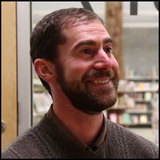 Dr. Samuel Singer grew up exploring the high desert in Yerington, Nevada. Study for a B.A. in Physics and Astronomy took him to Hampshire College and the deciduous forests of the east coast, where he discovered his love for outdoor science education. He earned a Masters in Science Education – Environment & Natural Resources by way of the Teton Science Schools of the University of Wyoming. Over the past decade Samuel has worked as an outdoor educator and wilderness guide in Wyoming and across the country. Samuel is also an accomplished astronomy educator and amateur astronomer. After he completed his doctorate degree in Science Education from the University of Wyoming he founded the Jackson based nonprofit organization, Wyoming Stargazing. On his time off, he enjoys meditation, backcountry skiing, rock climbing, and trail running.
5 Comments
|
Archives
March 2024
Categories
All
|
Contact UsJackson Wild
240 S. Glenwood, Suite 102 PO Box 3940 Jackson, WY 83001 307-200-3286 info@jacksonwild.org |

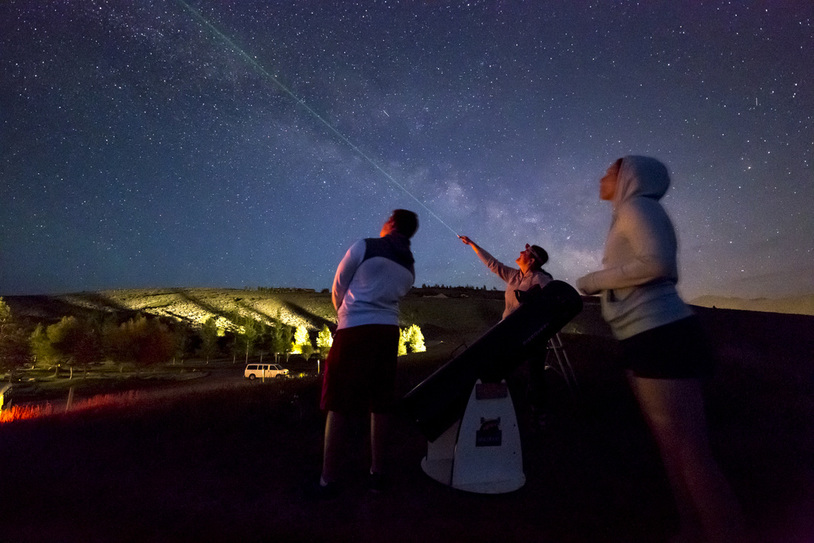
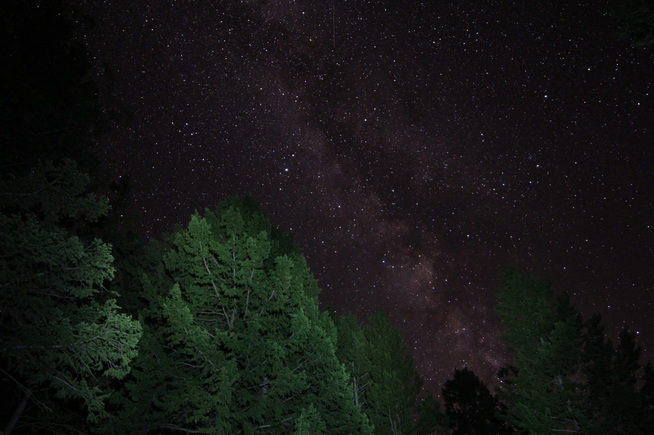
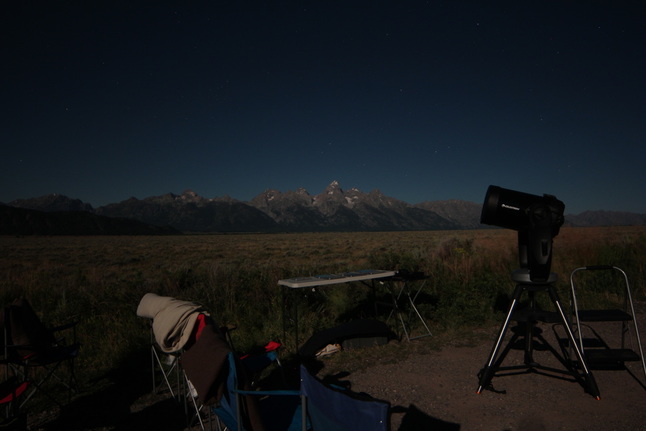
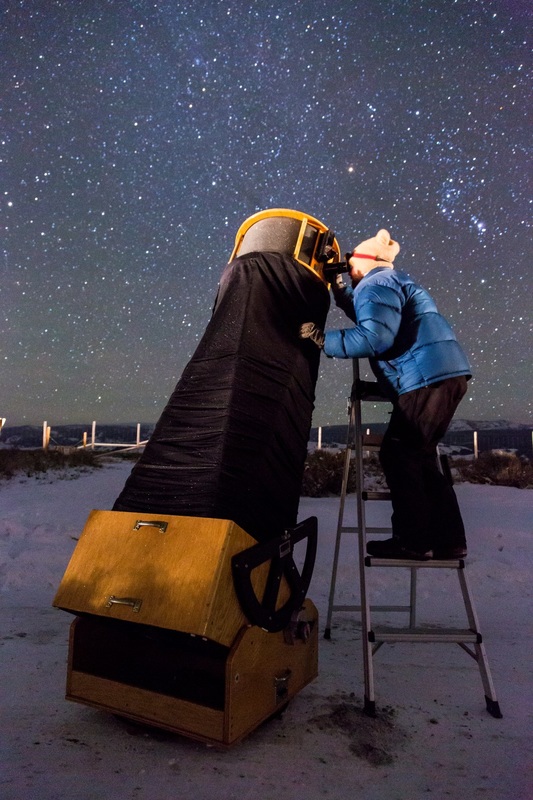
 RSS Feed
RSS Feed